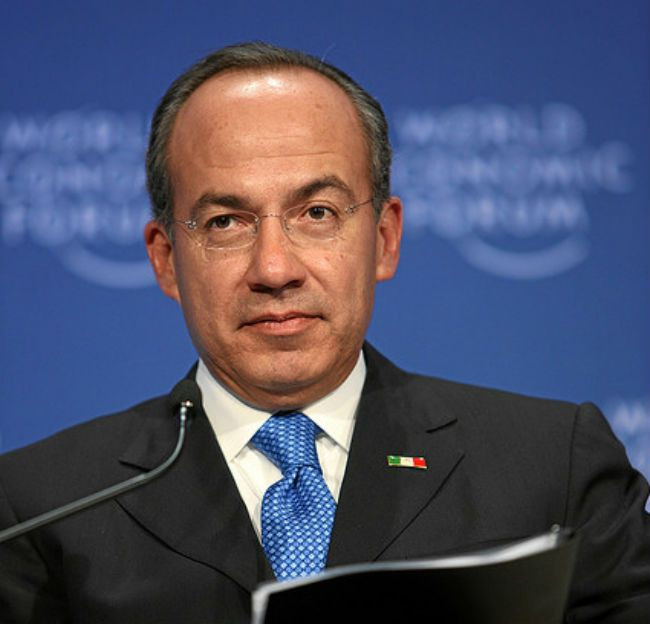
Mexican President Felipe Calderon sent a new proposal to liberalize the country's antiquated labor laws to lawmakers on Saturday as he seeks to fast-track the legislation before leaving office at the end of November.
Calderon's draft bill, submitted at the start of the new Congress by Interior Minister Alejandro Poire, is aimed at helping spur stronger growth in Latin America's second biggest economy.
Incoming President Enrique Pena Nieto of the Institutional Revolutionary Party, or PRI, has also pledged to back labor reform, and may work to help Calderon as the PRI will need opposition support to get its own laws through Congress.
Agreeing on labor reform has long proved difficult in Mexico, and the proposal could be a litmus test of how the PRI and Calderon's conservative National Action Party, or PAN, cooperate in the new Congress, which lasts three years.
The two parties were close to a deal on labor reform last year until the PRI ended up withholding approval for tactical reasons before a string of important elections.
Pena Nieto, who takes office on December 1, has been at pains to show his readiness to reach consensus with other parties after he fell short of a majority in Congress in the July 1 elections.
A few minutes after Poire submitted the proposal, PRI Senate leader Emilio Gamboa said his party would waste no time in setting up the framework to discuss it.
"I think we're going to be able to reach deals, not just with one party but with most of the parties," he said.
Calderon's bill takes advantage of a new law that allows the president to put forward two proposals at the start of each session of Congress. The two houses of Congress have two months in which to approve or reject the initiatives.
UNION RIGHTS
Poire gave no details on the labor proposal, which he submitted alongside a measure aimed at improving the financial transparency of municipal, state and federal governments.
PAN Senator Hector Larios said the draft labor law would seek to improve the transparency of Mexico's trade unions, the support of which the PRI has relied on for years.
PRI lawmakers close to the unions have repeatedly signaled they will resist certain changes to unions' rights, so the proposal could face tough negotiations in Congress.
The bill also seeks to make labor regulations more flexible and contains elements put forward by other parties, Larios added.
Labor reform, along with an effort to widen the tax base and allow more private investment in state oil giant Pemex have been the three main items on Pena Nieto's economic agenda.
Pena Nieto's win was only confirmed on Friday after the electoral tribunal rejected a bid by leftist rival Andres Manuel Lopez Obrador to overturn the result.
The former mayor of Mexico City had accused Pena Nieto of buying votes and laundering money in the election, allegations the PRI leader repeatedly denied.
Lopez Obrador's charges sparked major street protests in Mexico City against Pena Nieto during the campaign, and his final winning margin was smaller than expected.
Leftist lawmakers protested Pena Nieto's win in Congress on Saturday, saying the tribunal had failed Mexico.
Analysts expect Pena Nieto to wait until next year before pushing hard on drumming up support for the energy and fiscal reforms, which could face stiff opposition from the left and may also sit uneasily with left-leaning members of the PRI.
His capture of the presidency returns the PRI to power after a 12-year hiatus. The centrist party governed Mexico from 1929 to 2000, a rule frequently dogged by allegations of vote-rigging, authoritarianism and corruption.
© Thomson Reuters.




